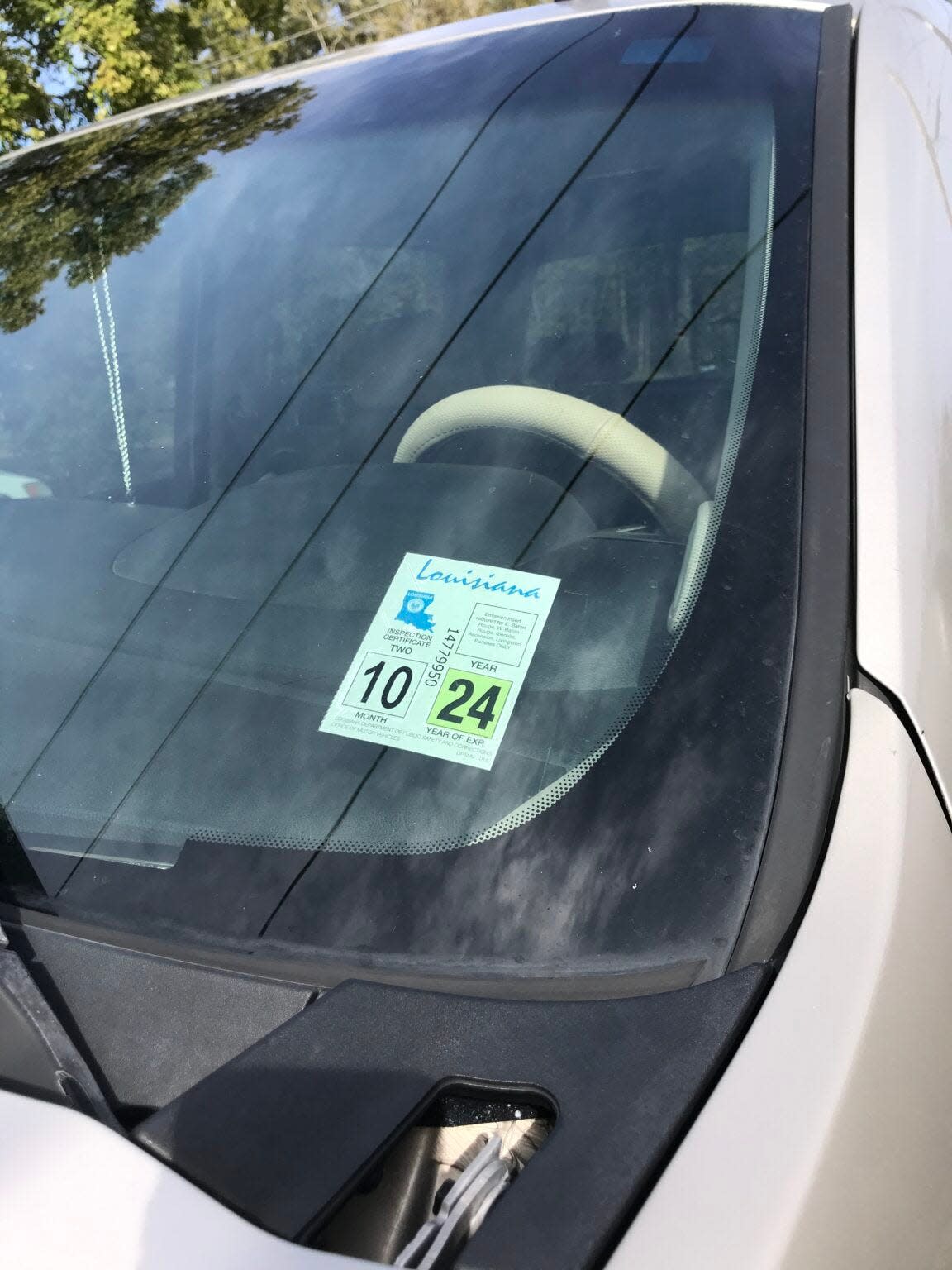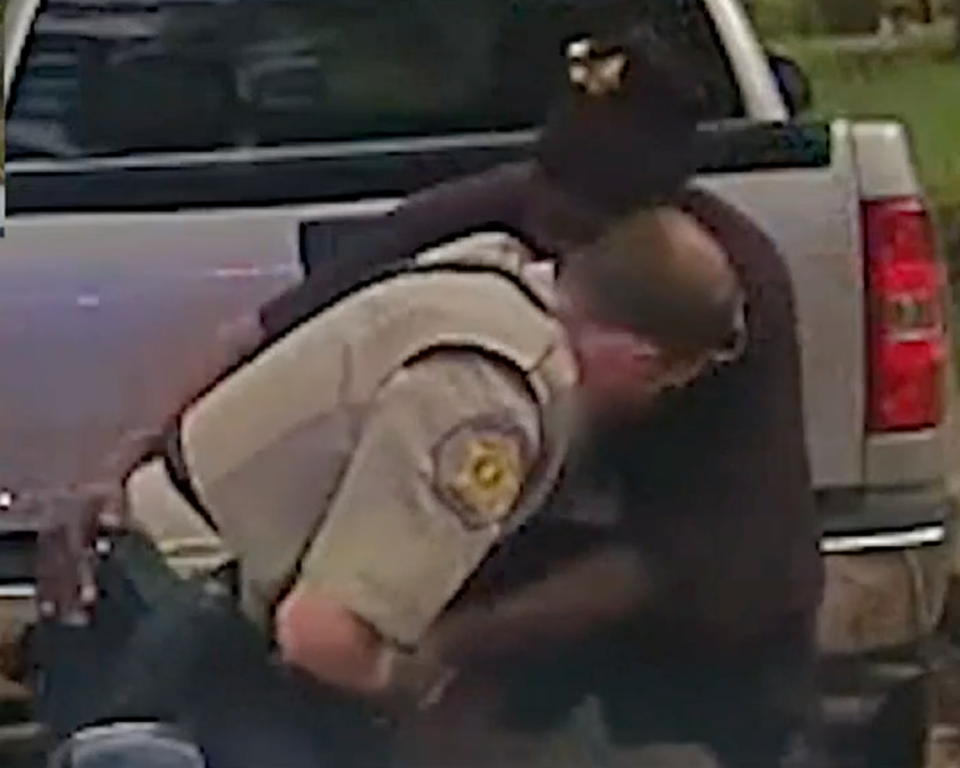Rapides traffic stop shooting death shines light on window tint enforcement

James Kittling remembers Nov. 6 starting like many other Sundays during football season. He was going to watch the Saints game with his brother, Derrick.
“I was gonna smother some pork chops,” James Kittling said, “make some rice and gravy, string beans, probably put some corn on the side. Before he left, I was telling him I was gonna cook, ‘so, make sure you come back.’”
Ten minutes later, James’ neighbors pounded on his door and shouted through the window. “The cops shot Derrick!”
The shooting death of Derrick Kittling, 45, following a traffic stop by a Rapides Parish sheriff’s deputy is the subject of an ongoing Louisiana State Police investigation. Its findings will be turned over to the Rapides Parish district attorney.
Deputy Rodney Anderson’s body-worn and dashboard camera video released two weeks later confirmed he shot Kittling during a scuffle after first deploying his Taser. The encounter, also captured through eyewitness video, lasted 58 seconds.
Though he asked Anderson repeatedly why the deputy had stopped him, Kittling died not knowing. State Police Superintendent Col. Lamar Davis later said Anderson, who has been placed on administrative leave, pulled over Kittling’s pickup truck for suspected window tint and modified muffler violations.
Davis also said the Sheriff’s Office had received reports of people with weapons in the Lower Third neighborhood where Kittling was pulled over.
State Police have not responded to a request for an update on where its investigation stands.
James Kittling said his brother had purchased the truck only a month earlier, not long after buying a lawn mower. Derrick Kittling was looking for a trailer to start a lawn service business, James said. The truck’s windows and muffler had come that way when Derrick bought the used vehicle from a local dealership, according to James.
An inspection sticker on the windshield of Derrick Kittling’s truck, with an October 2024 expiration date, indicates it passed inspection before Anderson pulled over the vehicle. State inspections are supposed to check window tinting with an approved light meter, and vehicles with exhaust systems that produce “excessive noise” can be rejected, according to state law.
Frequency of tint, muffler citations
Through a public records request, the Illuminator learned the Rapides Parish Sheriff’s Office has issued only a few citations for window tint and muffler infractions in the past three years.
There were seven modified muffler violations in 2020, 10 in 2021, and eight as of Nov. 28, 2022. The Sheriff's Office also reported a single window tint citation in 2020, five in 2021 and five as of late November last year.
Attorneys: Videos show Derrick Kittling's death at hands of Rapides deputy unwarranted
More:Family, community want to know why deputy shot local man during Alexandria traffic stop
Lt. Leon Philpot, the Sheriff's Office's information technology manager, advised in an email forwarded to the Illuminator by agency spokesman Tommy Carnline, that the agency data provided did "not include any ‘traffic stops’ for these offenses that did not result in a citation being issued, as well as any ticket that did not have a statute entered in the system.”
Lauren Bonds, executive director of the National Police Accountability Project, based in New Orleans, said though she personally has not heard of a tint or muffler violation escalating to a fatality, these low-level infractions are widely known as “gateway” violations.
“You get a tint violation,” Bonds said, “and then it’s ‘I saw that you didn’t have your seatbelts on’ and then ‘I got a chance to read your license and saw that you had a suspended license’ or ‘I get this chance to look at your insurance and see that it’s expired.’”
While Bonds called Sheriff's Offices citation numbers “strikingly low,” she described the tint and mufflers stops as often being “pretextual” or a reason to conduct another type of investigation.
“Once they find something bigger,” she said, “it’s very common for a lot of police departments not to include that [lower offense] on the ticket.”
‘Safety concerns’ questionable

After Ferguson, Missouri, police officer Darren Wilson fatally shot 18-year-old Michael Brown in 2014, a U.S. Department of Justice) study found a “pattern and practice” of police discrimination against Black motorists in the city. The more than 100-page report detailed one Black man’s encounter with police when pulled over for a tint violation.
Without stating why, the officer accused the man of being a pedophile, wouldn’t let him use his cell phone, ordered him out of the car to pat him down for weapons and asked to search his vehicle, according to the Justice Department report. Evoking his constitutional rights, the man refused. The officer pointed a gun at his head and arrested him. The man, who was a federal contractor, lost his job because of the charges.
Police often cite “safety concerns” as their rationale for enforcing laws such as window tinting, Bonds said, adding that those concerns usually aren’t substantiated.
“I can’t say that I’ve ever seen any evidence that people with heavily tinted windows are more likely to be transporting contraband or that they’ve been perpetrating any acts of violence against law enforcement,” she said. “If that information or data is out there, I am not familiar with it.”
Further complicating enforcement, Louisiana law allows medical and security exceptions to the window tinting rules for people with albinism, lupus and other conditions causing light sensitivity. Private investigators, bail bondsmen and public officials are also allowed to tint their windows beyond legal limits.
Some cities limit traffic stops
A National Police Accountability Project report on the benefits of fewer police traffic stops to increase public safety cites three jurisdictions that have moved to curtail them.
Berkeley, California, is transitioning to unarmed civil service officers, akin to meter readers, to enforce traffic laws. Philadelphia passed a driving equality law, the policy offshoot of a 2010 lawsuit that secured a court-ordered injunction that bars police from making stops for “secondary” violations such as broken brake lights or missing inspection stickers.
Bonds said the court effectively told the Philadelphia Police Department “you obviously can’t enforce these particular laws in a racially neutral manner, so you’re not allowed to enforce them at all.”
NPAP also highlighted a bill approved in the Virginia House that would go further than prohibiting police stops for “secondary violations,” such as tint and muffler violations. If enacted, evidence obtained from such stops could not be used “in any trial, hearing or other proceeding” in order to remove any police incentive to make overly broad stops.
Choosing to spend police resources enforcing minor infractions and exacting fines against community members as opposed to focusing on more serious crimes that endanger people in those communities “is the crux of the problem,” Bonds said.
Bonds said she hopes the NPAP report doesn’t give the impression that targeted communities need wait for lawsuits or legislative relief to limit pretextual stops.
“There’s a way for this to be dealt with at a more local level directly to police departments,” she said. Civic groups can meet with their police departments and start with the most basic of questions: “What are you focusing your time on?” she added.
James Kittling said his brother was grinning ear to ear when he first spotted the truck he bought. But he’s tortured by the thought that if he had never offered Derrick a ride to the dealership that day, he might still be alive.
Bonds says the responsibility for such tragedies shouldn’t be pushed down on individuals, dealerships or other vendors.
“It’s really on law enforcement discretion to make sure that these situations don’t get out of hand,” she said.
— The Louisiana Illuminator is an independent, nonprofit, nonpartisan news organization driven by its mission to cast light on how decisions are made in Baton Rouge and how they affect the lives of everyday Louisianians, particularly those who are poor or otherwise marginalized.
This article originally appeared on Alexandria Town Talk: Rapides traffic stop shooting shines light on window tint enforcement

